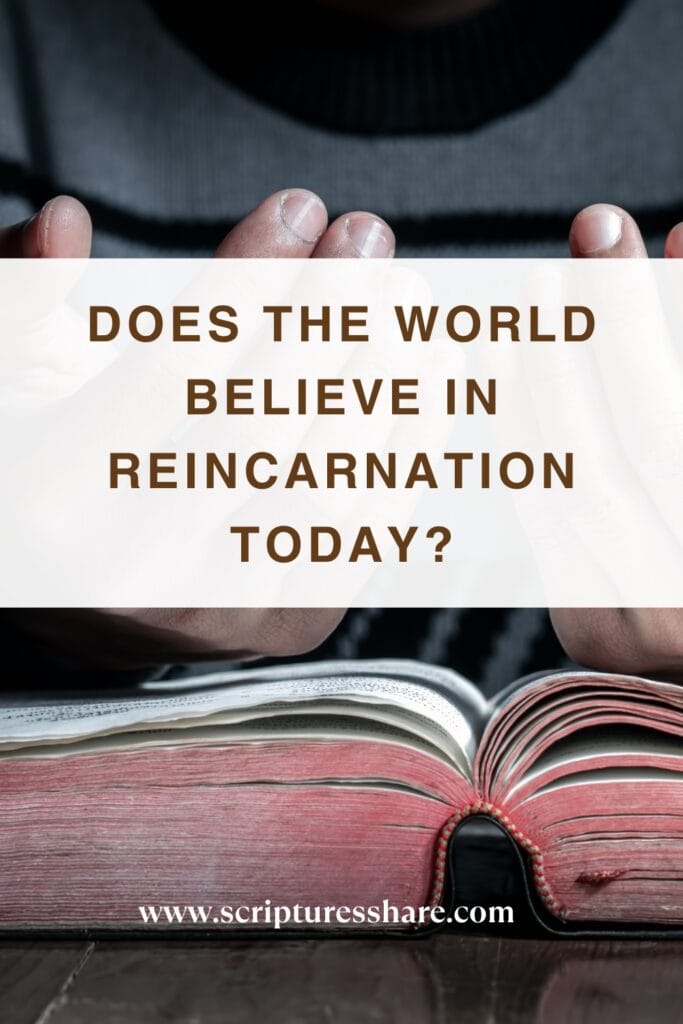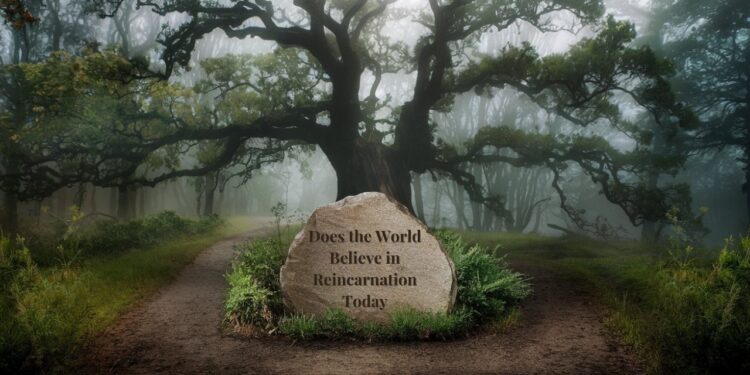No products in the cart.
Does the World Believe in Reincarnation Today?
ADVERTISEMENT
This post contains paid and/or affiliate links. I make a small commission at no extra cost to you. Please see our Privacy Policy.
Reincarnation has fascinated humans for centuries. It’s a belief in the soul’s rebirth in a new body after death. Many cultures see it as a way to find meaning and purpose in life and death. Today, how people view reincarnation varies greatly around the world.
The Historical Roots of Reincarnation
The idea of reincarnation comes from ancient religions like Hinduism and Buddhism. In Hinduism, the cycle of birth, death, and rebirth is driven by karma.
Buddhism also believes in reincarnation, teaching that enlightenment can break this cycle. New Age spirituality has also brought reincarnation back into modern beliefs.
Cultural Acceptance of Reincarnation Today
Reincarnation is seen differently in various cultures. Here are some examples:
- India: In India, reincarnation is a key part of Hindu and Buddhist beliefs. Many Indians believe in living virtuously to improve their future lives.
- Tibet: Tibetan Buddhism offers deep insights into rebirth. It includes rituals like the “Phowa,” helping the dying transition smoothly.
- Western Occultism: In the West, reincarnation has become popular through spiritual movements. It’s seen as a way to heal from past lives and grow personally.
- Japan: Japan’s Shintoism focuses on spirits, but some practices also include Buddhist beliefs about rebirth. This shows a mix of ideas.

Global Statistics on Belief in Reincarnation
Polls show how belief in reincarnation varies worldwide. Here’s a table with recent survey results:
| Region | Percentage of Belief in Reincarnation |
|---|---|
| India | 83% |
| United States | 25% |
| United Kingdom | 20% |
| Japan | 18% |
| Tibet | 90% |
These numbers show that belief in reincarnation is strong, mainly in places with a long history of this belief.
Why Do People Believe in Reincarnation?
There are several reasons why reincarnation remains appealing:
- Hope and Comfort: Many find comfort in believing life continues after death. This belief can reduce fear of death.
- Karma and Justice: The idea that our actions have consequences encourages ethical living. People see reincarnation as a form of cosmic justice.
- Personal Experiences: Some people remember past lives, adding a personal touch to their belief in reincarnation.
Modern Applications of Reincarnation Beliefs
In today’s world, reincarnation is linked to self-help, therapy, and spirituality. Past-life regression therapy is popular, helping people heal emotional issues.
Meditation and mindfulness also draw on reincarnation teachings, encouraging meaningful living in the present.
Advertisement. Scroll to continue reading.
Reincarnation is a significant belief that continues to shape lives and values globally. It invites exploration and discussion across cultures.
The question is not just if the world believes in reincarnation but how it influences our lives and understanding of existence.
The Psychological and Spiritual Impacts of Believing in Reincarnation
Reincarnation has been part of many cultures and religions for centuries. It raises interesting questions about life, death, and what comes next.
ADVERTISEMENT
But how does believing in reincarnation affect us psychologically and spiritually? Let’s explore the psychological and spiritual impacts of this belief system.
Psychological Impacts of Believing in Reincarnation
Believing in reincarnation can change how people see their lives. Here are some key effects:
- Hope and Resilience: Reincarnation gives hope to many. It makes them believe life goes on, urging them to keep going through tough times.
- Responsibility: People might feel more responsible for their actions. Knowing karma affects future lives, they think twice before doing harm.
- Fear of Judgment: Some fear being judged for past actions. This fear can cause anxiety, thinking their current life is a result of past mistakes.
- Reduced Grief: Reincarnation can help people deal with loss. Instead of seeing it as final, they find comfort in the idea of loved ones returning.
- Identity Exploration: Some try past-life regression therapy. It helps them understand their current behaviors, fears, and interests, leading to personal growth.
Spiritual Impacts of Believing in Reincarnation
Believing in reincarnation can deeply influence a person’s spiritual view. Here are some spiritual impacts:
- Connection to the Universe: Many feel a strong connection to the universe and all living beings. This connection encourages compassion and empathy.
- Purpose and Meaning: Reincarnation gives a sense of purpose. It makes people see each life as a chance to grow and learn.
- Exploration of Spirituality: Believers often explore spiritual practices like meditation. They aim to prepare for their next life or understand their spiritual journey.
- Understanding of Suffering: Reincarnation helps some understand suffering. It shows that pain can lead to spiritual growth over many lives.
- Compassion and Forgiveness: Believing in reincarnation fosters compassion. It encourages forgiveness, recognizing that we all make mistakes across lifetimes.
Global Perspectives on Reincarnation
Reincarnation is not unique to one culture. It’s found in many forms worldwide:
| Region | Religious/Philosophical Framework | Beliefs About Reincarnation |
|---|---|---|
| India | Hinduism, Buddhism | Life cycles through samsara determined by karma. |
| Tibet | Tibetan Buddhism | Belief in tulku, a reincarnated lama. |
| Western countries | New Age movements | Acceptance of past lives and karmic lessons. |
| African cultures | Various tribal beliefs | Spirits of ancestors are believed to influence reincarnation. |
This table shows the diversity of reincarnation beliefs. Cultures have shaped how people see their existence and rebirth.
Believing in reincarnation can deeply affect people. It gives them a sense of purpose and encourages compassion.
It helps them face loss and understand life’s challenges, making it significant for many worldwide.
Finally Thought
The idea of reincarnation is popular worldwide. It’s found in cultures like Hinduism and Buddhism, and even in Western societies today.
This belief helps people find meaning and continuity in life, easing worries about death.
Believing in reincarnation can change how we see aging and life experiences. It also helps us understand how our souls are connected. This idea can make us feel more connected to others.
Psychologically, believing in reincarnation can be very comforting. It helps reduce fears and encourages personal growth. People who believe in it might live more ethically and with more compassion.
Advertisement. Scroll to continue reading.
Advertisement. Scroll to continue reading.
ADVERTISEMENT
Seeing challenges as chances to learn and grow is another benefit. This mindset can help us overcome obstacles more easily.
As society changes, so does our view of reincarnation. But its core remains strong. It reminds us that life is more than one existence but a journey full of lessons.
ADVERTISEMENT
Thinking about reincarnation can lead to deeper conversations about life and death. It connects us all, across cultures and generations.
Engaging with this topic opens up a rich narrative that many believe in.
ADVERTISEMENT












